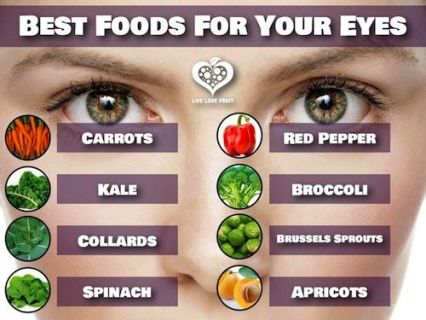LANGUAGES

LANGUAGES

Taking good care of your eyes is vital to your overall health and wellbeing. There are many things you can do to keep them healthy and make sure you are seeing your best.
Have a comprehensive dilated eye exam. You might think your vision is fine or that your eyes are healthy, but visiting your eye care professional for a comprehensive dilated eye exam is the only way to really be sure. When it comes to common vision problems, some people don’t realize they could see better with glasses or contact lenses. In addition, many common eye diseases such as glaucoma, diabetic eye disease and age-related macular degeneration often have no warning signs.
A dilated eye exam is the only way to detect these diseases in their early stages. Know your family’s eye health history. Talk to your family members about their eye health history. It’s important to know if anyone has been diagnosed with a disease or condition since many are hereditary. This will help to determine if you are at higher risk for developing an eye disease or condition.
Eat right to protect your sight. You’ve heard carrots are good for your eyes. But eating a diet rich in fruits and vegetables, particularly dark leafy greens such as spinach, kale, or collard greens is important for keeping your eyes healthy, too.i Research has also shown there are eye health benefits from eating fish high in omega-3 fatty acids, such as salmon, tuna, and halibut. Maintain a healthy weight. Being overweight or obese increases your risk of developing diabetes and other systemic conditions, which can lead to vision loss, such as diabetic eye disease or glaucoma. If you are having trouble maintaining a healthy weight, talk to your doctor.

PHOTO: PINTEREST.COM
Wear protective eyewear. Wear protective eyewear when playing sports or doing activities around the home. Protective eyewear includes safety glasses and goggles, safety shields, and eye guards specially designed to provide the correct protection for a certain activity. Most protective eyewear lenses are made of polycarbonate, which is 10 times stronger than other plastics. Many eye care providers sell protective eyewear, as do some sporting goods stores. Quit smoking or never start.
Smoking is as bad for your eyes as it is for the rest of your body. Research has linked smoking to an increased risk of developing age-related macular degeneration, cataract, and optic nerve damage, all of which can lead to blindness. Be cool and wear your shades. Sunglasses are a great fashion accessory, but their most important job is to protect your eyes from the sun’s ultraviolet rays. When purchasing sunglasses, look for ones that block out 99 to 100 percent of both UV-A and UV-B radiation.
Give your eyes a rest. If you spend a lot of time at the computer or focusing on any one thing, you sometimes forget to blink and your eyes can get fatigued. Try the 20-20-20 rule: Every 20 minutes, look away about 20 feet in front of you for 20 seconds. This can help reduce eyestrain. Clean your hands and your contact lensesproperly. To avoid the risk of infection, always wash your hands thoroughly before putting in or taking out your contact lenses. Make sure to disinfect contact lenses as instructed and replace them as appropriate. Practice workplace eye safety. Employers are required to provide a safe work environment. When protective eyewear is required as a part of your job, make a habit of wearing the appropriate type at all times and encourage your coworkers to do the same.
RELATED ARTICLES
OTHER ARTICLES

FITNESS
Exercise for a healthy heartYour heart is a muscle, and it gets stronger and healthier if you lead an active life. It's never too late to start exercising, and you don't have to be an athlete. Even taking a brisk walk for 30 minutes a day can make a big difference.

HEALTH & HEALING
Fall skin care tipsAs the days grow shorter, the temperatures drop, and the air becomes drier, your skin may lose precious moisture. Autumn is a time of transition, and the best autumn skin care routines will correct any summer damage that has occurred and prepare your skin for winter.

HEALTHY LIVING
How to release your emotional baggageWe are all a product of our life experiences-the good, the bad, and the ugly. Over time we begin to accumulate experiences-some that serve us, and some that sabotage us. We try to suppress or ignore the unpleasant experiences. As part of suppressing these memories, many times we numb ourselves to the emotions associated with them.
OLDER ARTICLES
LATEST FORUM UPDATES
tatamata, Monday, 21.11.2016 / 9:01
NEW ARTICLES
POPULAR ARTICLES